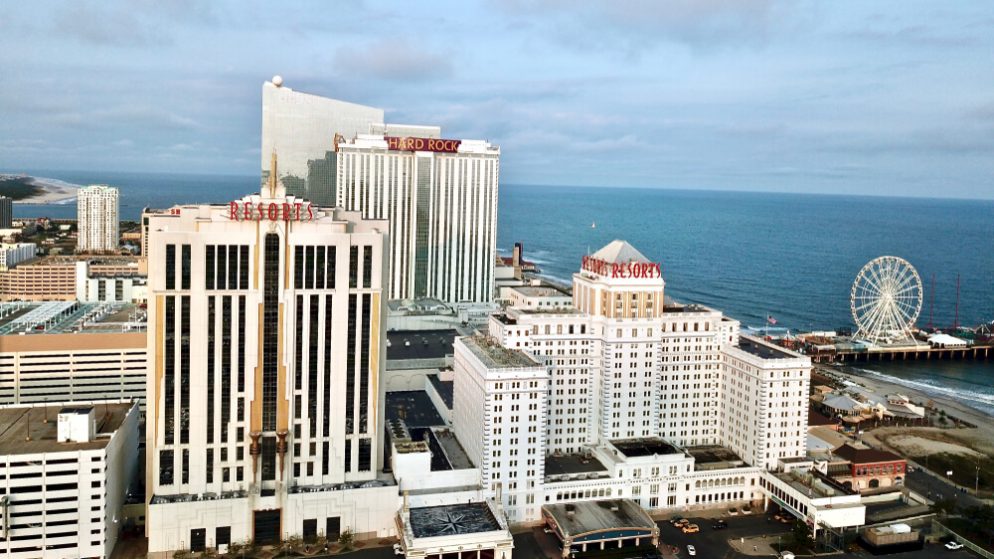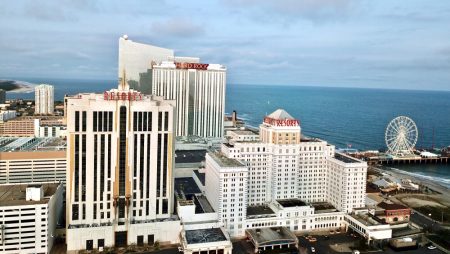

Tax is a huge expense for businesses everywhere; worse in areas where the tax laws appear rigid. The taxation of businesses is in fact one of the greatest reasons some entrepreneurs do not last too long in some markets. Well, the gambling operators in New Jersey have of late been feeling the weight of taxation.
With business still down due to the Covid-19 pandemic, four out of the nine casino giants of Atlantic City are at risk of closing down shop because of loss occasioned by taxations. The current economic scene over the past two years has been characterized by a dip in revenue amounts. Factor in taxation into these low numbers and most businesses are evidently finding it hard to survive.
The current plight of business for casino operators in AC has been brought to the limelight by a Democrat Lawmaker, Steve Sweeney. According to Sweeney, the only way those casinos will be able to make it past this difficult season is if they are given a tax break. He proposed that the senate should consider passing a bill that offers tax breaks to casinos when the economic forces dictate it.
Speaking at a Senate budget committee hearing, the outgoing president of the New Jersey State Senate represented the bill not as a way for helping casinos recover from the effects of the Coronavirus pandemic but as an amendment to an existing law. The original rationale of the law would only offer temporary reprieve at a time when the NJ casino industry is experiencing a temporary challenge.
If successful, the bill will have changed an existing piece of legislation that enables casinos to pay in lieu of taxes that are paid for property in Atlantic City. The taxes are paid to the Atlantic County authorities, city’s school system and Atlantic City. In return, casino owners are not to appeal against property taxes.
According to Sweeney’s presentation, there are four casinos that have been deeply affected and at risk of closing if the tax laws are not amended in their favor. Sweeney then posed a challenge to his fellow lawmakers by asking them to support the amendment to prevent business closure. His argument is that it is better to do something than to sit around and wait for the worst to happen then regret for not stepping in.
When a casino closes down, it not only pushes investors out of the market but also robs thousands of employees of a source of livelihood. Unemployment is a big economic burden and governments everywhere are always looking for ways to keep their people busy with meaningful jobs. The real task ahead of the New Jersey lawmakers is to offer a reasonable tax break to casino operators who then will remain profitable to keep their employees at work.
Sweeney will be stepping down as the senate’s president after losing out on last month’s re-election bid. He has reached out to my casino owners in Atlantic City and confirmed their woes with the casino association of NJ. The revelation that taxation was a major expense for casinos which is driving them out of business was given to him by the Casino Association of New Jersey, which is the trade group that lobbies for Atlantic City’s casino industry.
Hearing the casino industry’s challenges from the people who are directly affected paints a very clear picture of the situation that Sweeney is trying to get across. It makes sense that a business reaches out to relevant authorities offering them a chance to make the trade conditions favorable before shipping out.
The risk of unfavorable business conditions is that a business may leave one area to establish in another – this translates to loss in revenue in the form of levies and taxes.
A tax break is temporary and is dependent on the prevailing economic conditions. At the height of the Covid-19 pandemic for instance, many companies especially in the service delivery sector ran into losses due to reduced business. This led to loss of jobs for millions of workers around the world. A tax break was inevitable and most governments reduced the tax payable by businesses as well as individual income.
Even though the sting of the pandemic is gradually wearing off, many businesses have still not recovered from the losses incurred. The president of the casino association, Joe Lupo, who also serves as the Atlantic City’s Hard Rock casino’ president confirmed that indeed most casinos are yet to recover. Apparently, Sweeney is not the only elected official that the association has been engaging with concerning their plight.
Naturally, it should take time before the NJ senate comes to a consensus on this taxation matter but judging from the urgency, it will not be a surprise if they bring it forward in their agenda. While it is important to save a business, the assembly must also contemplate on how they will raise funds to run the affairs of the state given that casino levies account for a significant portion of their budget income.
Conclusion
The law dictates that every entity that transacts for profit must pay taxes to in the jurisdiction in which they operate. Now that Covid-19 has affected the entertainment sector heavily, many operators are unable to comply with tax obligations. Through their representatives, 4 major brands have decided to address their plight through the state assembly. Their only request is that legislators pass a bill that offers them a tax break during such hard business times. The Proposed bill must pass through all the necessary stages before it can be passed into law. If the process succeeds, the casino industry will survive. The casino owners now have the fate of their businesses in the hands of the people they selected to represent them in local government. It is going to be a matter of wait and see but a lot of livelihoods now hang on the nature of this bill.





